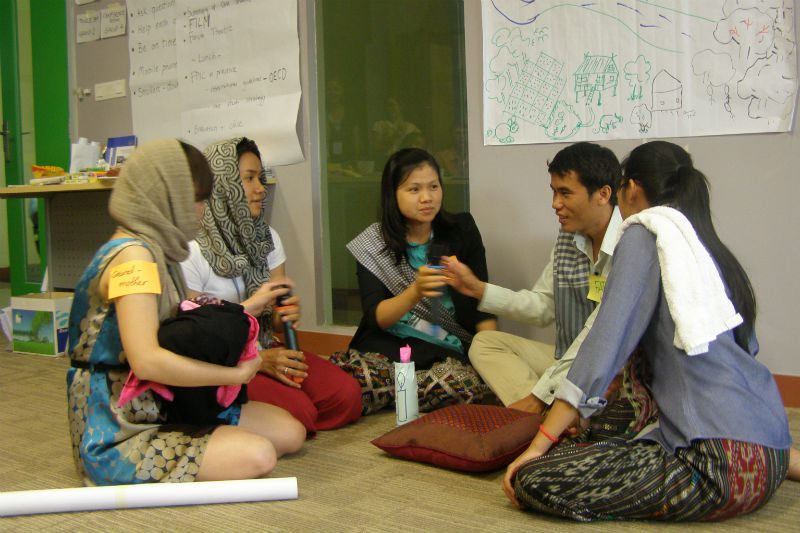
By Robin Narciso, Communications and Information Officer Phnom Penh & Worawan Sukraroek, Regional Policy Advisor.
Free, prior and informed consent (FPIC) is a critical tool to promote indigenous rights. At Oxfam , we define FPIC as a principle to ensure that all affected communities, including non-indigenous ones, are informed and give their consent prior to project development in their villages. FPIC is a practical tool to enable project affected people to assert their rights and influence the decision making process. Unfortunately in development projects, such as mining and hydropower located on Indigenous land, FPIC is often not implemented. As result, community members are left out of the planning and decision-making process.
Seven steps to make it right.
A way of implementing FPIC is constituted by seven steps that communities can take when facing destructive development projects.
The seven step process clarifies how communities could try to get information about the project and its developer, organise community discussions, negotiate with the companies, seek independent advice, and make decision as a community. FPIC is not only a process, but also a collective right of Indigenous Peoples to decide what happens to their lands and natural resources.
FPIC in the Mekong region
“I would like to understand what FPIC means in practice and promote FPIC in my advocacy work on dam development in the West of Cambodia”, said Mr. Somnua San from an environmental NGO based in Koh Kong in Cambodia.
Like him, several other NGO workers from the Mekong region joined a FPIC training workshop organised by Oxfam from the 11th to the 13th of June in Phnom Penh. The objectives of the workshop were to provide practical information on FPIC, identify opportunities for using FPIC and develop strategies for civil society organization and campaigns help plan how to use FPIC to support communities who are affected by development projects.
One of the highlights of the workshop was the Forum Theatre, which is an interactive, participatory form of theatre. In this case it meant to showcase the impact of a development project on a community. The theatre is a unique opportunity for anyone who watches it to identify the risks of such projects and practice strategies for future action. Participants felt that it could be useful to guide practical implementation of the seven step process in dam advocacy and other development projects.
To this end, participants observed that a constant debate on FPIC among NGOs and CSOs and communities is crucial to challenge destructive hydropower and mining projects planned in the Lower Mekong Region. In particular, discussions focused on advocacy strategies and campaigning around mining and hydropower development projects such as the case of Lower Sesan 2 hydropower dam and Angkor Gold mining project, in Cambodia.
After the workshop Mr BP , from River Protection Network based in Ratanakiri stated that: “I think FPIC has the potential to promote the rights of people affected by the dam projects in the region. The first step is to raise awareness about the FPIC concept and (promote) the seven steps at communities meeting and (share them with) NGO allies.”
Participants also highlighted how there is a strong need to promote FPIC at a higher level among decision makers.
*Names have been changed for privacy
Keep the Mekong River flowing freely. Sign the petition.
